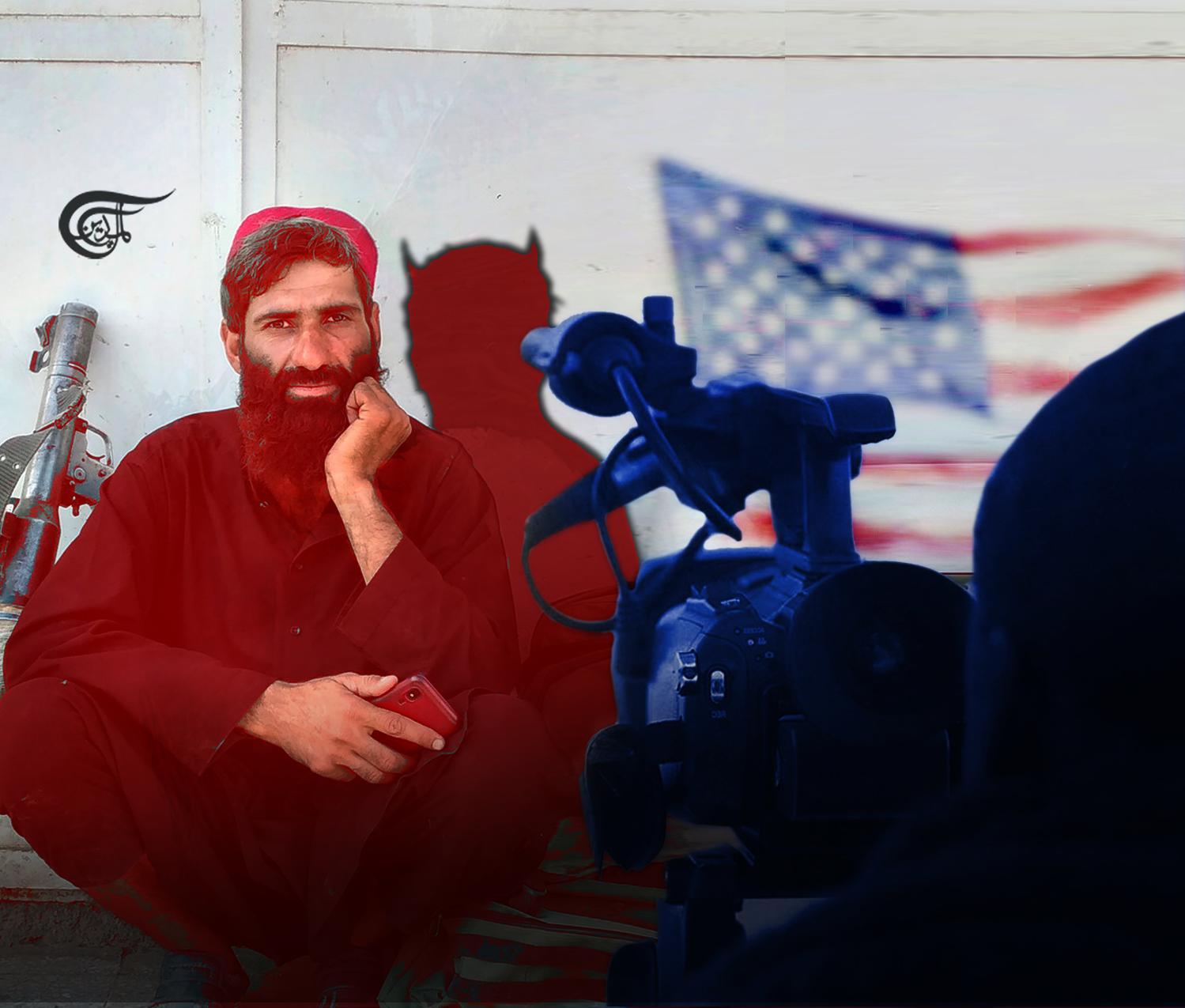Is Western Media Justified in Demonizing Taliban 2.0?
the media expecting the Taliban to miraculously fix Afghanistan’s problems in a matter of weeks is unrealistic; especially, when the US, US’s allies, and the previous Afghan government failed to deliver in two decades.
Recently, Taliban spokesman Suhail Shaheen spoke to Russia’s Sputnik news and discussed possibilities of opening up to the world. Shaheen said; “in a new chapter if America wants to have a relation with us, which could be in the interest of both countries and both peoples, and if they want to participate in the reconstruction of Afghanistan, they are welcome”. Shaheen added without mincing his words, “Of course, we won’t have any relation with Israel. We want to have relations with other countries; Israel is not among these countries.” Shaheen’s comments regarding "Israel" have added new fervor within the western media outlets to bash Taliban 2.0, who is now being branded as anti-Semitic among other things.
The Taliban are trying everything to pacify the hysteria surrounding them, by publically announcing that, women’s rights, media freedom, amnesty for government officials will be ensured and safe passage to foreigners and to those having valid visas will be granted. Nevertheless, the western media continues with the Taliban bashing.
The Taliban’s efforts to reopen schools for girls are shown on the media with grim pictures of dilapidated schools with visuals of girls wearing headscarves, emphasizing subjugation of women.
The Taliban’s efforts for establishing well-equipped security teams shown on the media as Taliban gaining access to abandoned US military equipment and being more dangerous than ever.
The Taliban were last in power two decades ago and back then, they lacked severely in diplomatic skills, nor did they have the tolerance to govern with inclusivity, their method of governance was brutal which comprised of fierce floggings, amputations, public executions, and women were largely excluded from public life. In 2001 the Taliban blew up the Buddhas of Bamiyan statues, which dated back to the 6th century; in the name of Islam and in retaliation against the international community for economic sanctions. It is because of the Taliban’s brutal past that the media is unwilling to trust Taliban 2.0.
On September 07, 2021, the Taliban announced their new interim government, with Mohammad Hasan Akhund as the acting Prime Minister who was a close aide to the late Mullah Omar, the original founder of the Taliban movement. Abdul Ghani Baradar has been appointed as the deputy Prime Minister who was the head of the Taliban’s political office. The acting interior minister Sirajuddin Haqqani is the son of the founder of the Haqqani Network. The acting defense minister is Mullah Muhammad Yaqoob who is the son of the founder of Taliban Mullah Omar and the acting Foreign Minister Amir Khan Muttaqi who previously served as a Taliban negotiator in Doha. Analysts across the board are commenting that Taliban 2.0 is not very different from the original group and comprises mostly the same old faces. They are accepted for their rhetorical to mask their true intentions. The political commentators are quick to demonstrate that despite the Taliban’s claims of establishing an inclusive government, the new interim government is ethnocentric with Pashtuns getting the lion’s share of the power roughly 90 percent. The analysts also point out that the Taliban has completely excluded women and many other minority groups and most notably the Hazaras who are the third largest ethnic group in the country.
Pundits and political commentators should abstain from making hasty claims as it is too early to render conclusions; it has been less than four weeks since the Taliban have taken control of the country which is not only war-torn but also lacks any semblance of stability. The country is classified within the low human development category at the rank of 169 among 189 countries on the Human Development Index (HDI). Afghanistan is riddled with corruption as it is ranked 165/179 on the Corruption Perception Index and also fares poorly when it comes to other indicators like; life expectancy, infant mortality, and literacy rate. Despite the US spending $2.26 trillion in Afghanistan, there is not a lot to show for on the ground, as $1.5 trillion was spent on waging war, $87 billion were spent on training and equipping the Afghan security forces, and only $54 billion, over the course of two decades, was spent on economic development and reconstruction which roughly amounts to a mere $2.7 billion per annum. According to a report by Special Inspector General for Afghanistan Reconstruction (SIGAR); $15.5 billion of the economic development and reconstruction funds, were wasted on programs that were poorly conceived or riddled with corruption leading to no gains. This translates to an actual investment of $38.5 billion for economic development and reconstruction over a period of 20 years meaning a mere $1.9 billion per annum. Thus, the media expecting the Taliban to miraculously fix Afghanistan’s problems in a matter of weeks is unrealistic; especially, when the US, US’s allies, and the previous Afghan government failed to deliver in two decades.
It is important to note that the current Taliban seems a very different outfit and appears to have somewhat ironed out their ideological flaws and rigid worldview over time, after all, it has been 20 years since they were last in power. There are a lot of positive signs; the old Taliban held a very rigid worldview. However, the current Taliban honored the US withdrawal deal, they have agreed to an understanding with China. They seem to have a very apt negotiating group in Doha, the new Taliban are much more media and tech-savvy which is evident from their adaptation of social media where their media spokespersons are quick to respond to issues. They have a relatively open stance regarding education for girls, and seem tolerant in their worldview, and are ready to embrace relations with other countries barring "Israel".
Friendly countries are taking note of these changes, as Pakistan’s foreign office issued a statement regarding the newly announced interim government in Kabul, stating; “We have noted the latest announcement about formation of [an] interim political set-up in Kabul, which would address the requirement of a governance structure to meet the urgent needs of the people of Afghanistan, we hope that the new political dispensation will ensure coordinated efforts for peace, security and stability in Afghanistan as well as work towards taking care of humanitarian and development needs of the Afghan people."
Upon the announcement of the Taliban’s new interim government, China’s Foreign Minister Wang Yi stated; “The common view of the international community is that the end of military intervention by the United States and its allies should be the beginning of the Taliban assuming their responsibilities.” And in good faith to support the interim government Wang Yi announced a $31 million emergency aid package along with 3 million COVID-19 vaccines to Afghanistan. Turkey and Russia hold a similar but reserved view and aimed to closely follow the new government’s future course. The world needs to see the signs of optimism amid all the chaos as 38.4 million Afghan lives are at stake. The first optimistic sign is the fact that, an interim government has been established which will provide the international entities a government structure which will be a configuration through which humanitarian aid can be channeled to the Afghan people. The second sign is that, unlike 20 years ago, Taliban 2.0 has shown some degree of openness and has given the impression of being media-savvy in projecting their vision for the future of Afghanistan.
Apart from the harsh media coverage, the western powers are setting up the interim Taliban government to fall apart. The US and its NATO allies are denying access to funds and other resources, which the Taliban desperately need to start rebuilding the Afghan economy. The US government froze around $9.5 billion in assets belonging to the Afghan central bank. The International Monetary Fund (IMF) followed suit and stopped Afghanistan’s loan package of $370 million. The World Bank also announced to suspend $12.9 billion worth of development projects under the Afghanistan Reconstruction Trust Fund.
International money transfer companies like Western Union and MoneyGram suspended their services in Afghanistan which will dry up the much-needed inflow of foreign currency which usually comes in the form of foreign remittances and replenishes the country’s foreign reserves. Such measures along with holding media trials of the Taliban are contrary to the wellbeing of the Afghan people who have already endured such hardships. The west needs to be cognizant of the fact that, it was these isolation tactics in the past which alienated the Taliban. The west needs to accept the fact that, the Taliban takeover in Afghanistan is a reality; no matter how many times the West blinks and wishes its failures to disappear. It is wise for countries to proceed with caution towards the Taliban owing to their brutal past, yet confidence needs to be given to the current interim government, as it faces an uphill task of learning the ropes of governance and managing an economy. The US and its allies took a shot at nation-building and failed miserably, now the world needs to accept the fact that, Afghanistan and its people deserve a chance to live in peace and their right of self-determination should also be accepted devoid of intervention.

 Shafei Moiz Hali
Shafei Moiz Hali
 9 Min Read
9 Min Read












